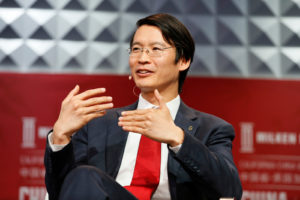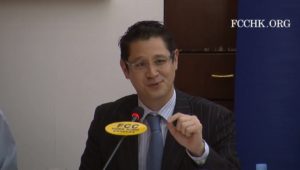
China was the first economy to leapfrog into mobile, skipping hardware technologies from the West. Now it is moving from “mobile first” into “data first”, paving the digital road also for other economies, writes investment analyst Winston Wenyan Ma in Arabian Business.
Winston Wenyan Ma:
Across just about every industry sector, Chinese companies are rushing to learn how new digital technologies, including the internet of things, AI, blockchain, cloud computing and data analytics can be integrated into their businesses to unlock value from non-traditional angles. The transformation of businesses and industries has been more profound than from the mere addition of internet.
Again, taking the logistics issue Singles Day for example. The inventory, distribution and delivery of numerous orders in a short span of time is such a challenge.
And as such, Alibaba’s logistics affiliate, Cainiao, launched big data analytics to empower merchants with demand forecast data and allow them to accurately pre-stock their goods in the right quantity and location.
Moreover, Cainiao used GIS (Geographic Information System) to determine the fastest and most cost-effective delivery routes in a variety of complex road networks, including both rural villages and crowded urban areas. Because of the 2020 coronavirus pandemic, Cainiao deployed more than 10,000 mobile lockers to allow customers to pick-up parcels without human contact.
All these have profound implications for emerging markets that are looking at China as a reference case when they work on their own digital transformation. That means they need to look beyond mobile phones and the digital wallet; instead, they must start positioning themselves for the next phase – AI and the digital economy – now.
The billion-user messaging service of WeChat, $74 billion e-commerce in 24 hours on Singles Day, and “smile-to-pay” functions creating a cashless society are already screenshots from yesterday.
Winston Wenyan Ma is a speaker at the China Speakers Bureau. Do you need him at your (online) meeting or conference? Do get in touch or fill in our speakers’ request form.
Are you looking for more experts on innovation at the China Speakers Bureau? Do check out this list.
























